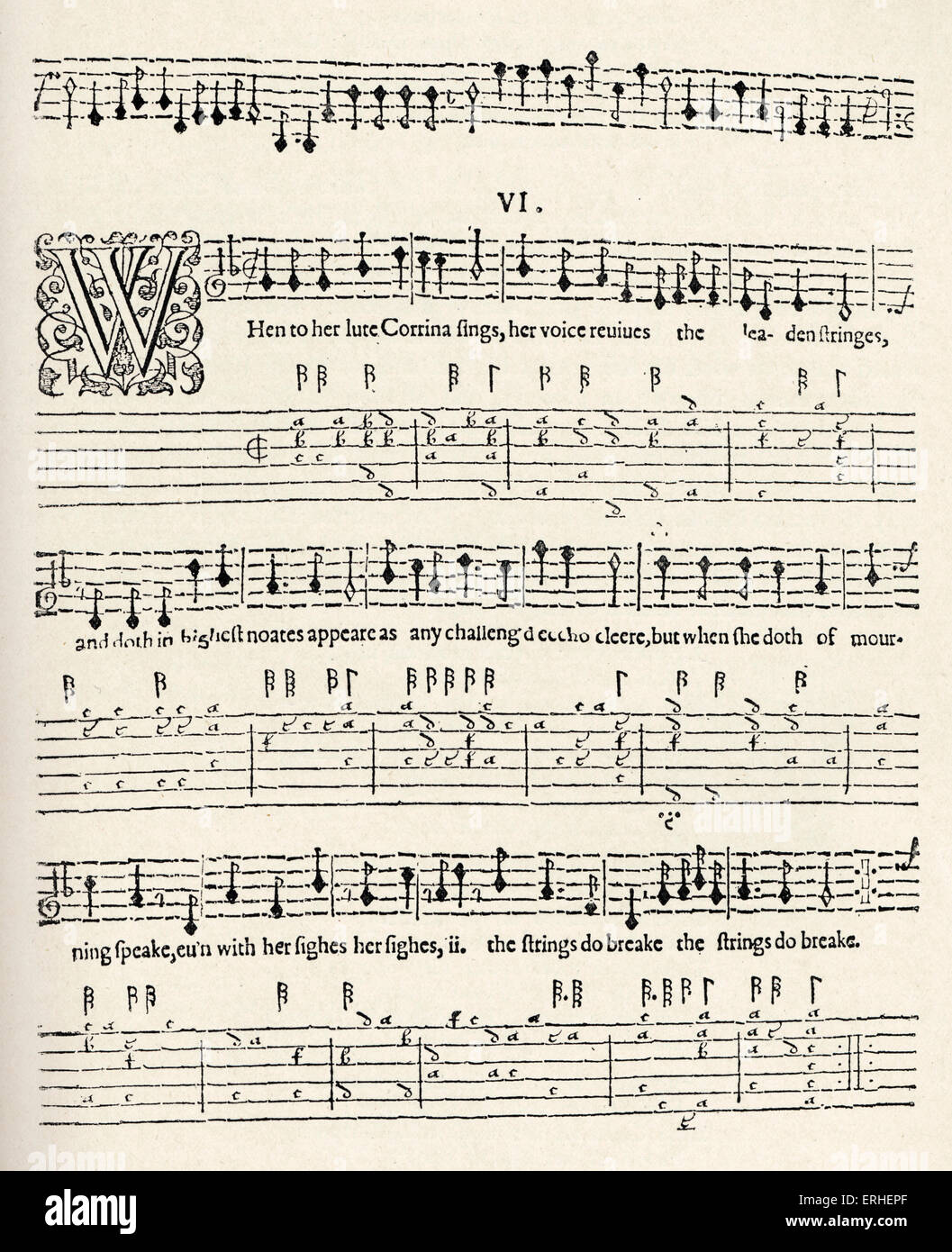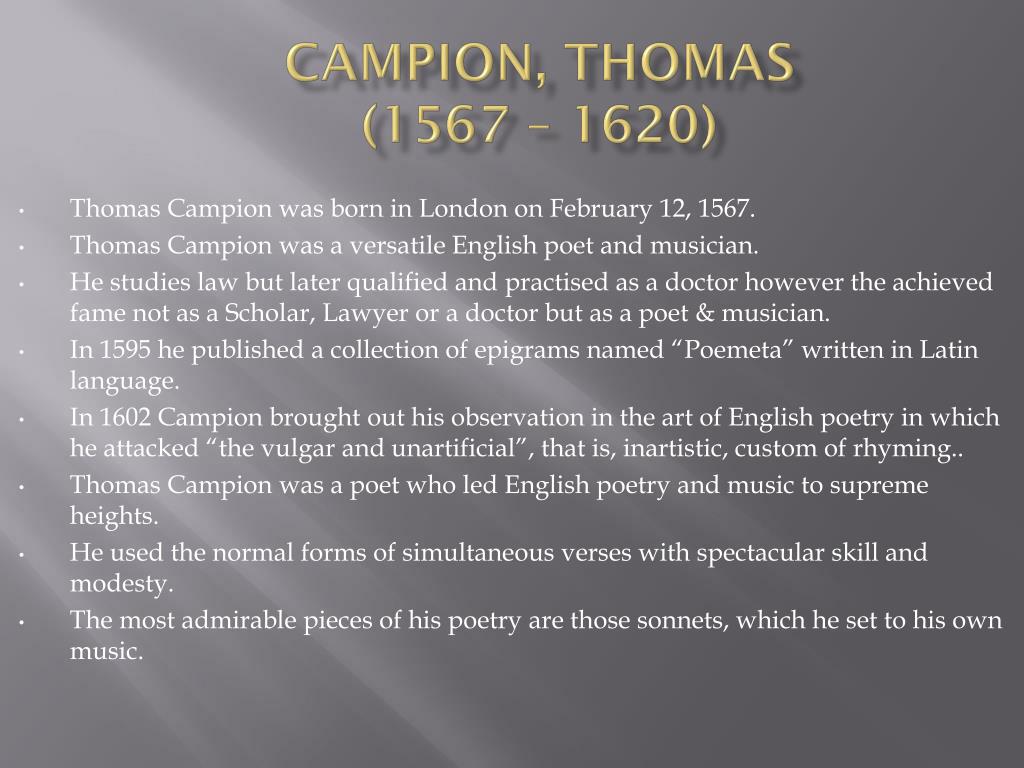
Welcome to the captivating realm of **Thomas Campion**, a remarkable individual whose profound contributions to both poetry and music have significantly shaped the landscape of English literature. Campion was not just a poet; he was a true lyrical genius whose works resonate with beauty and depth. His innovative musical theories and compositions further highlight his multifaceted talent, showcasing a unique blend of creativity and intellectual prowess. As we explore the life and legacy of this extraordinary figure, we invite you to settle in with a warm cup of tea. Join us on this journey through the rich tapestry of Campion’s experiences, influences, and artistic achievements, which continue to inspire and enchant audiences to this day.
Who Was Thomas Campion?

Thomas Campion, born on **February 12, 1567**, in London, was a remarkable individual whose talents extended far beyond poetry. He was not only a gifted poet but also a **composer**, a **musical theorist**, and even a trained physician. This diverse array of skills positions him as a distinctive figure in the cultural landscape of the late **16th** and early **17th centuries**, a time marked by significant artistic and intellectual developments.
### Early Life and Education
Campion’s academic journey began at the **University of Cambridge**, where he studied from **1581 to 1584**. Initially, he embarked on a path in law while in London, but he ultimately chose not to pursue a legal career. Instead, he redirected his focus and traveled to France, where he earned a degree in medicine from the **University of Caen** by **1606**. This shift in his educational pursuits highlights his adaptability and broad interests.
### Transition to Medicine
Upon obtaining his medical degree, Campion practiced medicine until his passing in **1620**. His dual expertise in both the arts and sciences invites intriguing speculation about how his medical knowledge may have enriched his poetic works. It’s fascinating to consider how the analytical skills and observations he honed as a physician could have influenced his creative expression, providing a unique lens through which he viewed the world. Campion’s legacy, therefore, is not only that of a poet but also of a Renaissance man whose contributions spanned multiple disciplines.
Literary Contributions

Campion’s literary journey commenced with a significant milestone: his first publication, which emerged anonymously in a pirated edition of Philip Sidney’s *Astrophel and Stella* in 1591. This initial foray into the literary world was merely the starting point for a prolific career that would see him explore various genres and forms of expression.
### Major Works
Throughout his life, Campion produced a remarkable body of work that showcased his versatility and creativity. Below is a selection of his major publications:
| Year | Title | Type |
|——-|———————————–|————————|
| 1595 | Poemata | Latin Epigrams |
| 1601 | A Booke of Ayres | Musical Compilation |
| 1607 | Masque | Theatrical Work |
| 1613 | Two Bookes of Ayres | Musical Compilation |
| 1617 | Third and Fourth Booke of Ayres | Musical Compilation |
### Lyric Poetry
It is in the realm of lyric poetry that Campion’s true genius is most vividly displayed. His songs, often accompanied by the lute, stand out for their lyrical beauty and emotional depth. Unlike many of his contemporaries, who tended to create static images with their words, Campion had a unique ability to evoke the **delights of the natural world** through the dynamic interplay of sound and movement. His work resonates with a sense of life and vitality, capturing the essence of human experience in a way that continues to inspire readers and musicians alike.
Musical Theories

While Campion’s theories on music may not be as comprehensive as his contributions to poetry, they nonetheless hold considerable importance in the realm of artistic expression. He approached music through the lens of the modern key system, which marked a notable shift away from the traditional modal systems that had dominated earlier musical compositions. This innovative perspective not only reflects his forward-thinking mindset but also aligns with the evolving nature of music during his time.
In his influential treatise titled “Observations in the Art of English Poesie,” published in 1602, Campion offered a critical examination of the prevalent use of rhymed, accentual meters in poetry. He posited that the essence of verse structure lies in the elements of timing and sound duration, a revolutionary idea that challenged the established norms of poetic composition during his era. His insights encouraged poets to consider the musicality of their work in a more profound way.
Although Campion championed the concept of quantitative, unrhymed verse, he did not consistently apply this principle in his own poetic creations. Instead, his true originality is evident in the manner in which he approached conventional themes, infusing them with a fresh perspective that breathed new life into familiar subjects. This ability to reinterpret and innovate within the framework of established traditions is what sets Campion apart as a significant figure in the literary and musical landscape of his time.
Campion’s Unique Style

What sets Campion apart from other poets of his era? His ability to express feelings through sound and rhythm rather than just visual imagery. It’s like he painted with music instead of colors!
Freshness in Conventional Subjects
Campion’s approach to traditional themes makes his work feel immediate and personal. He invites readers to experience emotions in a way that feels fresh and relatable.
Rose-cheekt Lawra, Come
This classic lyric is perhaps his most famous work. It beautifully encapsulates his style and mastery of language. If you haven’t read it yet, you’re in for a treat!
Legacy and Influence

Campion’s influence extends beyond his lifetime. His works have been studied and celebrated, and they continue to inspire poets and musicians today. The Selected Songs, edited by W.H. Auden, was published in 1972, further cementing his legacy.
Impact on Modern Poetry
Many modern poets draw inspiration from Campion’s innovative use of rhythm and sound. His ability to blend music and poetry is a skill that many strive to emulate.
Conclusion
In summary, Thomas Campion was a true Renaissance man whose contributions to poetry and music are still celebrated today. His unique style, innovative theories, and lyrical genius make him a fascinating figure in English literature. So, the next time you hear a beautiful lute melody or read a poignant poem, think of Campion and the lasting impact he has made!

